- Home
- insider picks
- news
- These $3 million luxury yachts can handle 'horrible' weather conditions at sea, including waves up to 13 feet high and strong winds
These $3 million luxury yachts can handle 'horrible' weather conditions at sea, including waves up to 13 feet high and strong winds
Sam Tabahriti,Kate Duffy

Princess Yachts make boats that can withstand bad weather conditions.Princess Yachts
- Yachts built by British boat builder Princess are made for "horrible weather conditions."
- It means strong winds and waves of 13 feet can't hurt these $3 million yachts, Princess said.
Yachts, ships, and other vessels have to go through extreme weather conditions, given that they spend the majority of their time on the water.
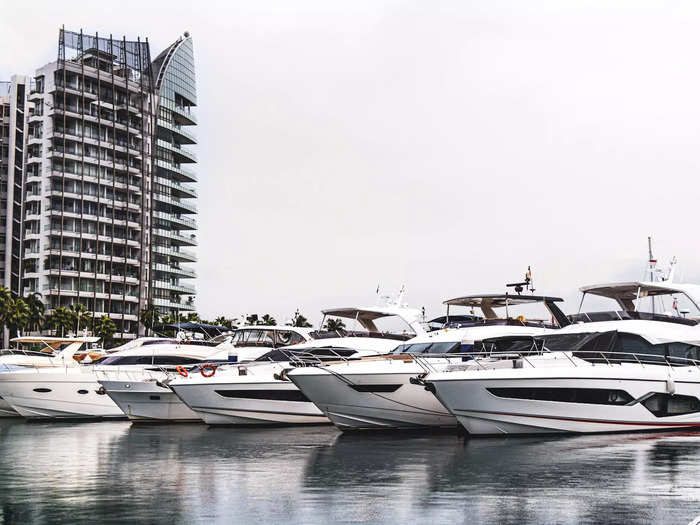
Marielle Descalsota/Insider
This means the yachts have to be built in a certain way so they can endure whatever nature chucks at them, come rain or shine.
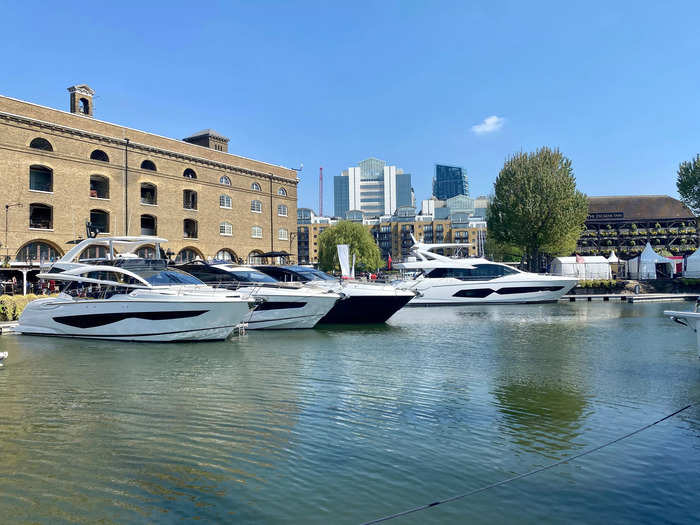
Kate Duffy/Insider.
Princess Yachts manufactures luxury vessels in south England for a range of customers, mainly business owners and families, Will Green, executive director of sales, told Insider.
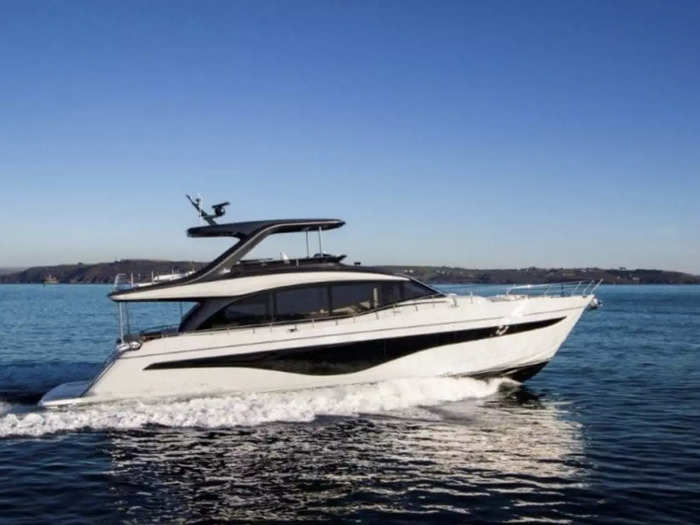
Princess Yachts
The materials that Princess uses mean the yachts are resistant to "horrible weather conditions" at sea, Green said.
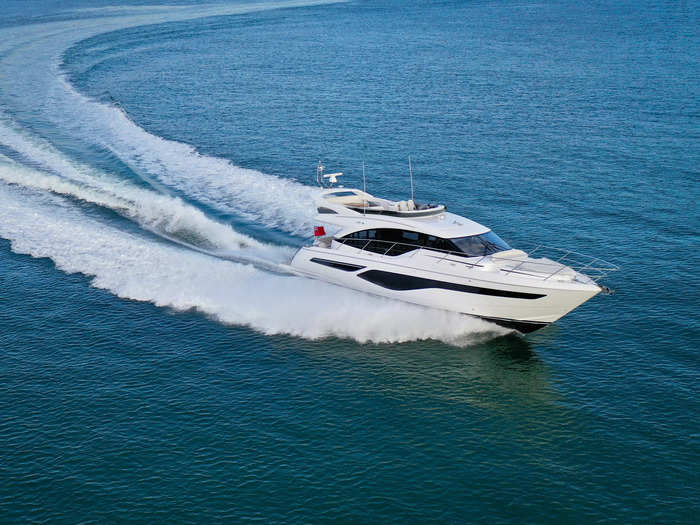
Princess Yachts
Princess said its boats are built to withstand Category B offshore conditions as per UKCA & CE marking.
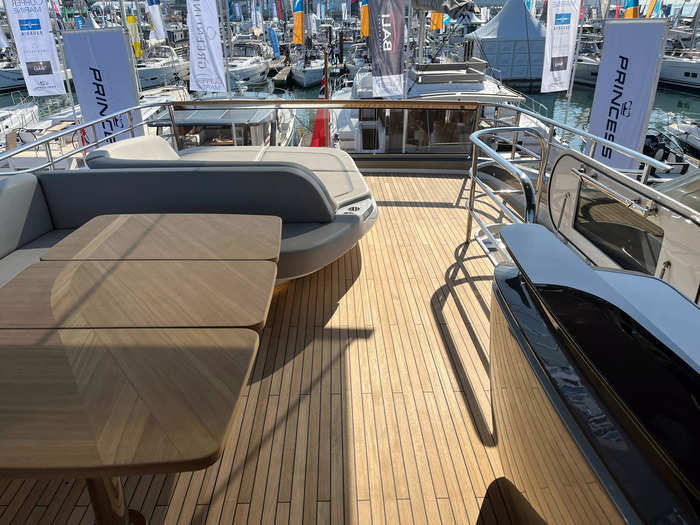
Kate Duffy/Insider
Category B conditions include winds of up to 40 knots and wave heights of around 13 feet, Princess said.
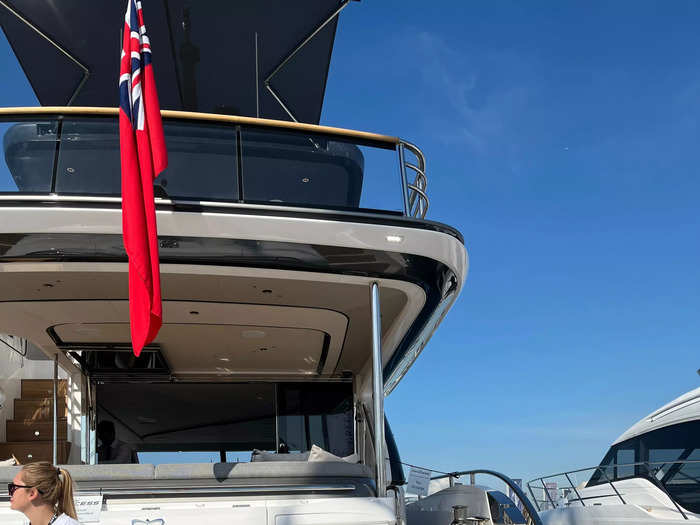
Kate Duffy/Insider
"If you're offshore and a storm blows in, you can get home safely and comfortably," with the Princess Yachts, Green said. "But there's a lot of fair weather boaters out there who won't go out if there's a bit of breeze or a bit of chop."
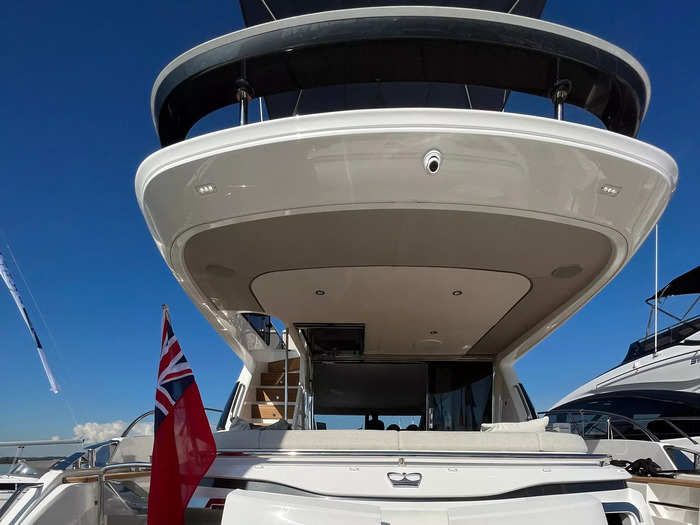
Kate Duffy/Insider
And while these yachts can withstand "horrible" conditions, the maintenance can't be an afterthought.
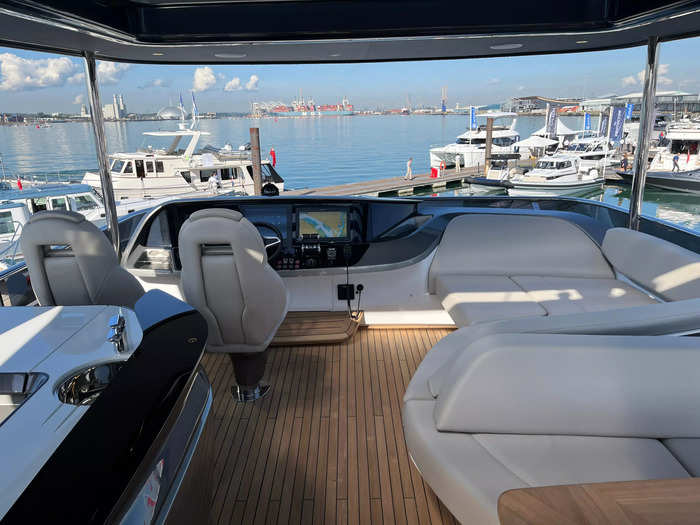
Kate Duffy/Insider
Green said the average rule of thumb for any boat is to allow between 5% and 10% of the boat's value to look after it.
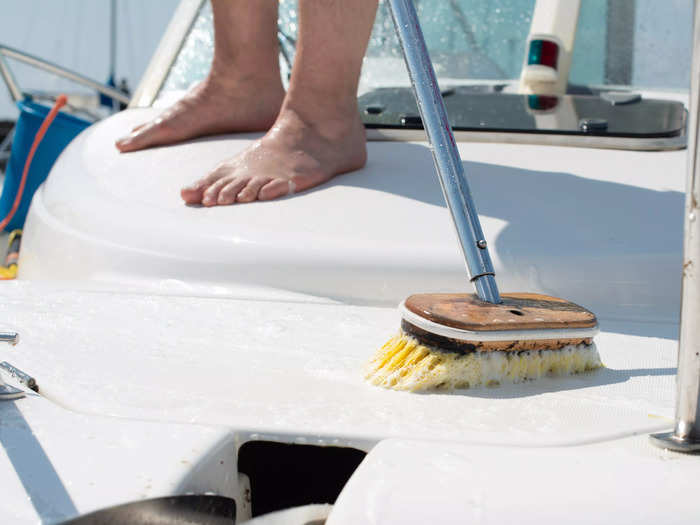
Getty Images
Green said: "Let's say you have a 30-feet speedboat, you maybe keep it in a dry stack. You've got to clean it, you got to have the engine serviced and that sort of value is probably 5%."
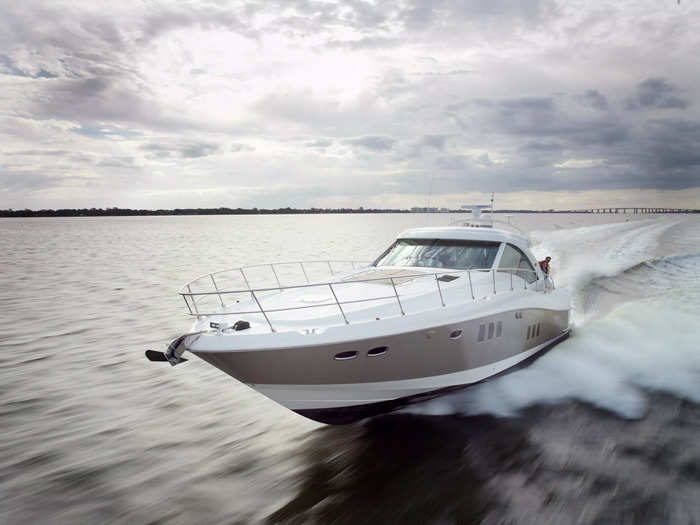
Getty Images
"But if you have a 100-foot toy, you possibly have a crew of five and you have to pay a captain a serious salary," according to Green.He added: "Your birthing is more expensive, particularly if you keep it somewhere that is considered a premium location and if you have a fully crude boat and operate it that way, perhaps it's closer to 10%."
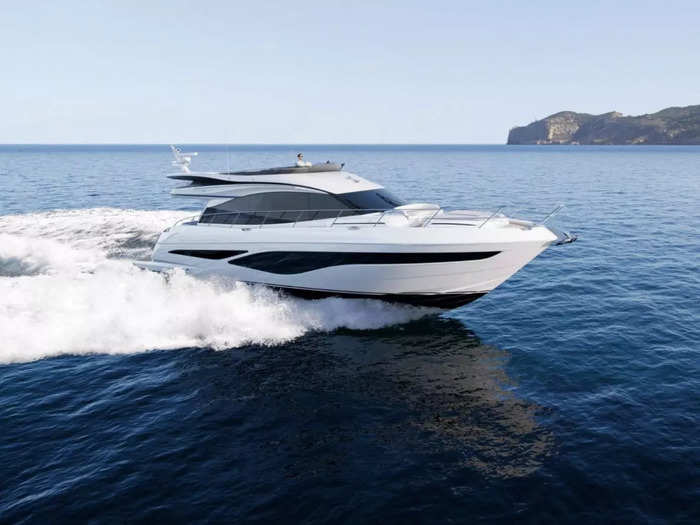
Princess Yachts
But there's one way to offset the costs of maintenance, according to Green: chartering.
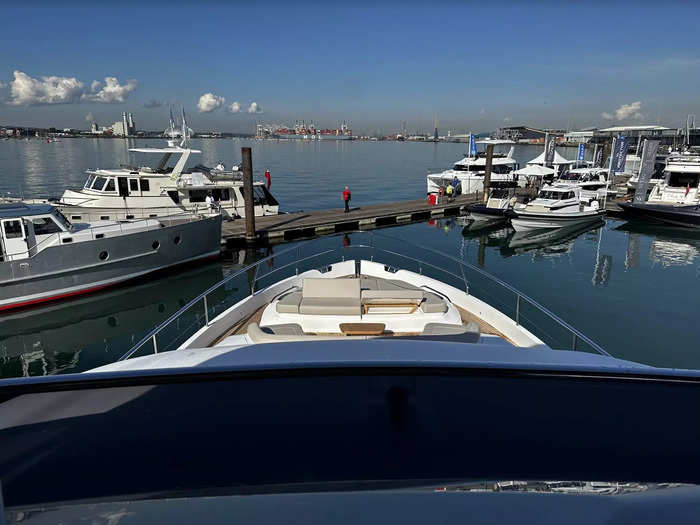
Sam Tabahriti/Insider
Owning a yacht will rarely pay for itself, unless it is chartered, which can turn into a profitable investment, including offsetting the cost of owning the yacht.
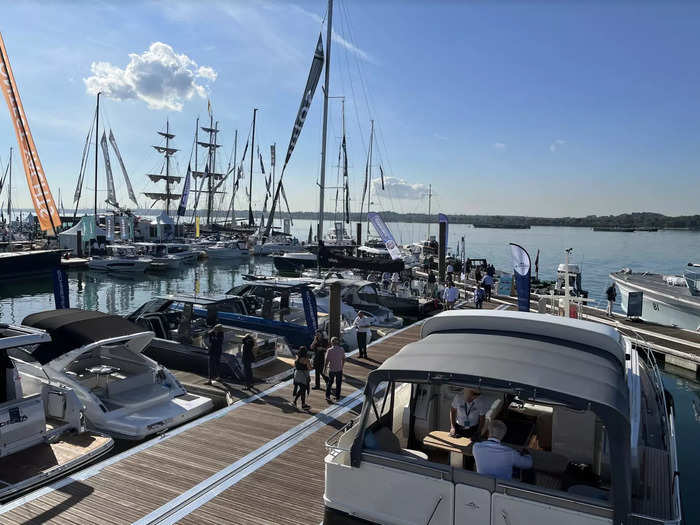
Kate Duffy/Insider
Green told Insider that many customers would run their yachts themselves, however, without crew members. "But even if they do that, they probably have a captain, a 'boat boy,' or some crew members to keep the boat clean."
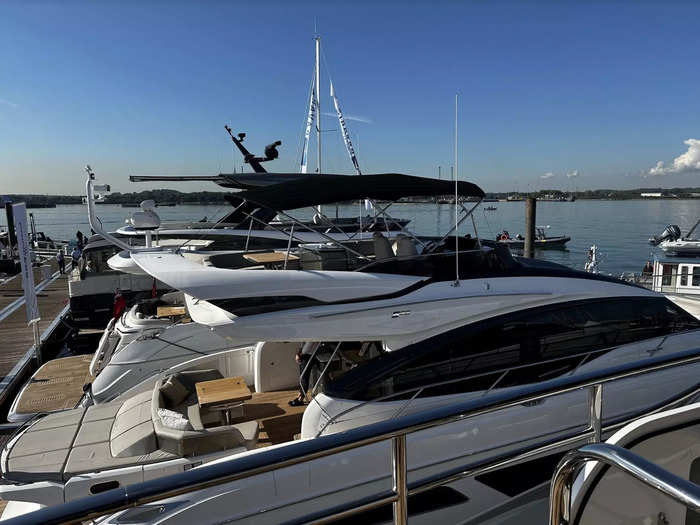
Sam Tabahriti/Insider
"Because every time the boat goes to sea, it is covered in saltwater so it's constant maintenance and some owners are happy to do that themselves, but some just want to open the bottle of wine and let someone else do the hard work," Green concluded.
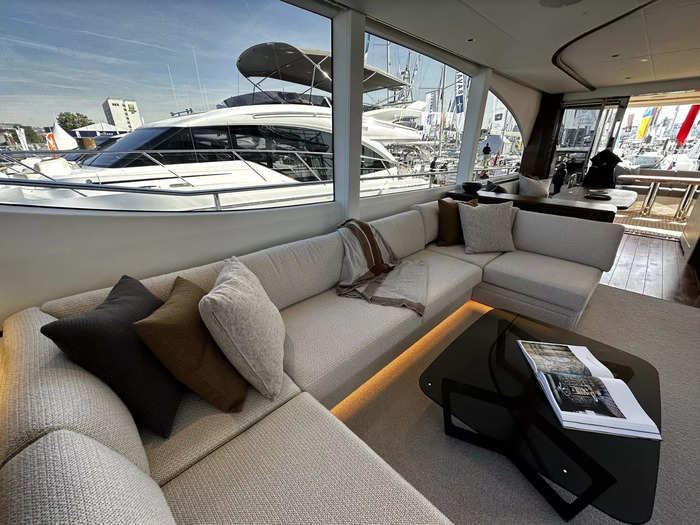
Sam Tabahriti/Insider
Popular Right Now
Advertisement